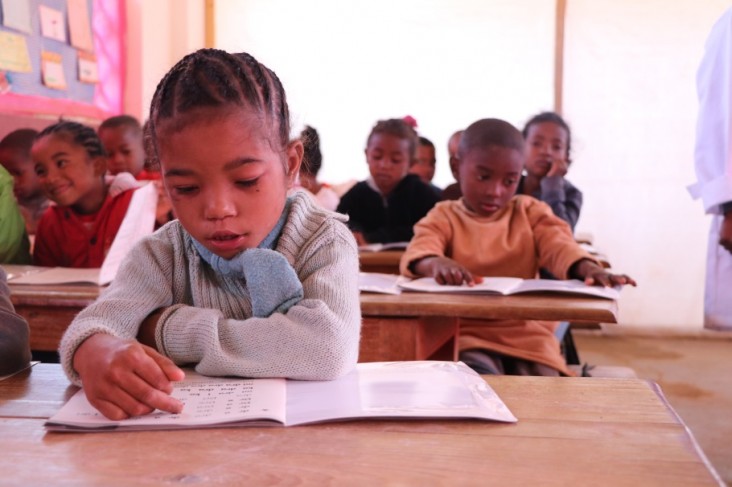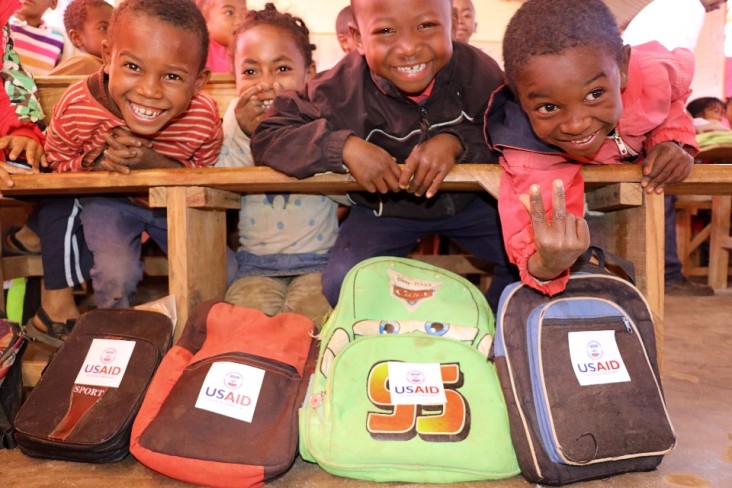Speeches Shim

Malagasy children deserve the best possible start on their education, and knowing how to read and write is an essential skill.
USAID Madagascar and the Ministry of National Education designed a new approach to improve how Malagasy schoolchildren in grades 1 – 3 learn to read. The program was called “Mahay Mamaky Teny” (MMT), meaning ‘I Know How to Read’. With the help of the World Bank, USAID ran a 7-month pilot project at 60 schools in the Analamanga and Boeny regions.
The MMT project developed reading and writing materials based on a linguistic analysis of the Malagasy language. They found, for example, that it was easier to read Malagasy by focusing on word units, like syllables, and word elements rather than on complete words. The basic principle underpinning the project is that when a child learns to read in a familiar language, it will be easier and quicker for him/her to use those skills while learning a second or third language.
On average, students attending MMT pilot schools outperformed similar students in the control schools. The results were so outstanding, with big improvements made in letter and syllable identification, familiar word reading, and oral reading fluency that the Ministry of National Education decided to fully adopt the materials and approach at the national level. The ministry will also work on developing materials for teaching reading in Malagasy at higher grade levels, drawing upon the technical expertise learned through the MMT pilot project.


Comment
Make a general inquiry or suggest an improvement.